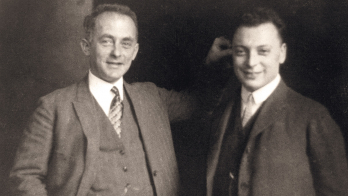By Shan Gao
Cambridge University Press
Does the wave function directly represent a state of reality, or merely a state of (incomplete) knowledge of it, or something else? This question is the starting point of this book, in which the author – a professor of philosophy – aims to make sense of the wave function in quantum mechanics and investigate the ontological content of the theory. A very powerful mathematical object, the wave function has always been the focus of a debate that goes beyond physics and mathematics to the philosophy of science.
The first part of the book (chapters 1–5) deals with the nature of the wave function and provides a critical review of its competing interpretations. In the second part (chapters 6 and 7), the author focuses on the ontological meaning of the wave function and proposes his view, which is that the wave function in quantum mechanics is real and represents the state of random discontinuous motion of particles in 3D space. He offers two main arguments supporting this new interpretation. The third part (chapters 8 and 9) is devoted to investigating possible implications. In particular, the author discusses whether the quantum ontology described by the wave function is enough to account for our definite experience, or whether additional elements, such as many worlds or hidden variables, are needed.
Aimed at readers familiar with the basics of quantum mechanics, the book could also appeal to students and researchers interested in the philosophical aspects of modern science theories.








